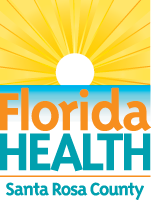It's a New Day in Public Health.
The Florida Department of Health works to protect, promote, and improve the health of all people in Florida through integrated state, county, and community efforts.
Santa Rosa County Residents Encouraged to Enjoy Tobacco Free Parks
August 24, 2020
MILTON, Fla. – Going outside and enjoying the outdoors is a wonderful way to spend time with your family. It is an opportunity to disconnect from phones, computers, and TV to enjoy outdoor recreations. Whether you like to walk, play frisbee, or let the little ones play on the playground, Santa Rosa County residents have the opportunity to visit numerous parks throughout the county. Many of these parks are tobacco free spaces, which means visitors can enjoy being outdoors without being exposed to cigarette smoke or e-cigarette vapor.
Tobacco free spaces, including parks, have surged in popularity for many reasons:
- They support people who want to quit tobacco and help them succeed.[i][1][ii][2][iii][3]
- They also set a positive example and provide fewer opportunities for youth to start smoking.[iv][
[v]4][vi][5] - They protect nonsmokers, especially children, from being exposed to secondhand smoke and vapors from e-cigarettes.
“Residents may not realize there are many local parks throughout the county that have adopted a smokefree policy.” said Kristie Beckstrom, Health Education Manager and Students Working Against Tobacco (SWAT) Coordinator for the Santa Rosa County Health Department. Benny Russell Park in Pace and Tiger Point Park in Gulf Breeze are two examples of parks with smokefree policies. You can find more park locations and amenities by visiting the county and city websites.
Santa Rosa County has many tobacco free parks. However, there are parks that are not designated as tobacco free. If you are interested in finding out more information, please contact your local Tobacco Free Florida representatives, Kristie Beckstrom or Vince Nguyen at 850-983-5200.
While parks and recreational facilities can offer health benefits, it is important to take the necessary steps to protect yourself and others during this time. Make sure to continue to practice everyday preventative actions like social distancing, wearing a mask when others are around and washing your hands often.
###
About Tobacco Free Florida
The Florida Department of Health’s Tobacco Free Florida campaign is a statewide cessation and prevention campaign funded by Florida’s tobacco settlement fund. Since the program began in 2007, more than 234,000 Floridians have successfully quit using one of Tobacco Free Florida’s free tools and services. There are now approximately 451,000 fewer adult smokers in Florida than there was 10 years ago, and the state has saved $17.7 billion in health care costs. To learn more about Tobacco Free Florida’s Quit Your Way services, visit www.tobaccofreeflorida.com or follow the campaign on Facebook at www.facebook.com/TobaccoFreeFlorida or on Twitter at www.twitter.com/tobaccofreefla.
[vii][1] U.S. Department of Health and Human Services. The Health Consequences of Involuntary Exposure to Tobacco Smoke: A Report of the Surgeon General. Atlanta, GA: U.S. Department of Health and Human Services, Centers for Disease Control and Prevention, National Center for Chronic Disease Prevention and Health Promotion, Office on Smoking and Health, 2006.
[viii][2] Hopkins DP, Razi S, Leeks KD, Priva Kalra G, Chattopadhyay SK, Soler RE, et al. Task Force on Community Preventative Services. Smoke-Free Policies to Reduce Tobacco Use: A Systematic Review. American Journal of Preventative Medicine 2010;38(2 Suppl):S275-89.
[ix][3] International Agency for Research on Cancer (IARC). Handbooks of Cancer Prevention, Tobacco Control, Volume 13: Evaluating the Effectiveness of Smoke-Free PoliciesCdc-pdf External Lyon, France: WHO, 2009.
[x][4] U.S. Department of Health and Human Services. The Health Consequences of Involuntary Exposure to Tobacco Smoke: A Report of the Surgeon General. Atlanta, GA: U.S. Department of Health and Human Services, Centers for Disease Control and Prevention, National Center for Chronic Disease Prevention and Health Promotion, Office on Smoking and Health, 2006.
[xi][5] Siegal M, Albers AB, Cheng DM, Biener L, Rigotti NA. Local Restaurant Smoking Regulations and the Adolescent Smoking Initiation Process: Results of a Multilevel Contextual Analysis Among Massachusetts Youth. Archives of Pediatric and Adolescent Medicine 2008;162(5):477-83.




Connect with DOH